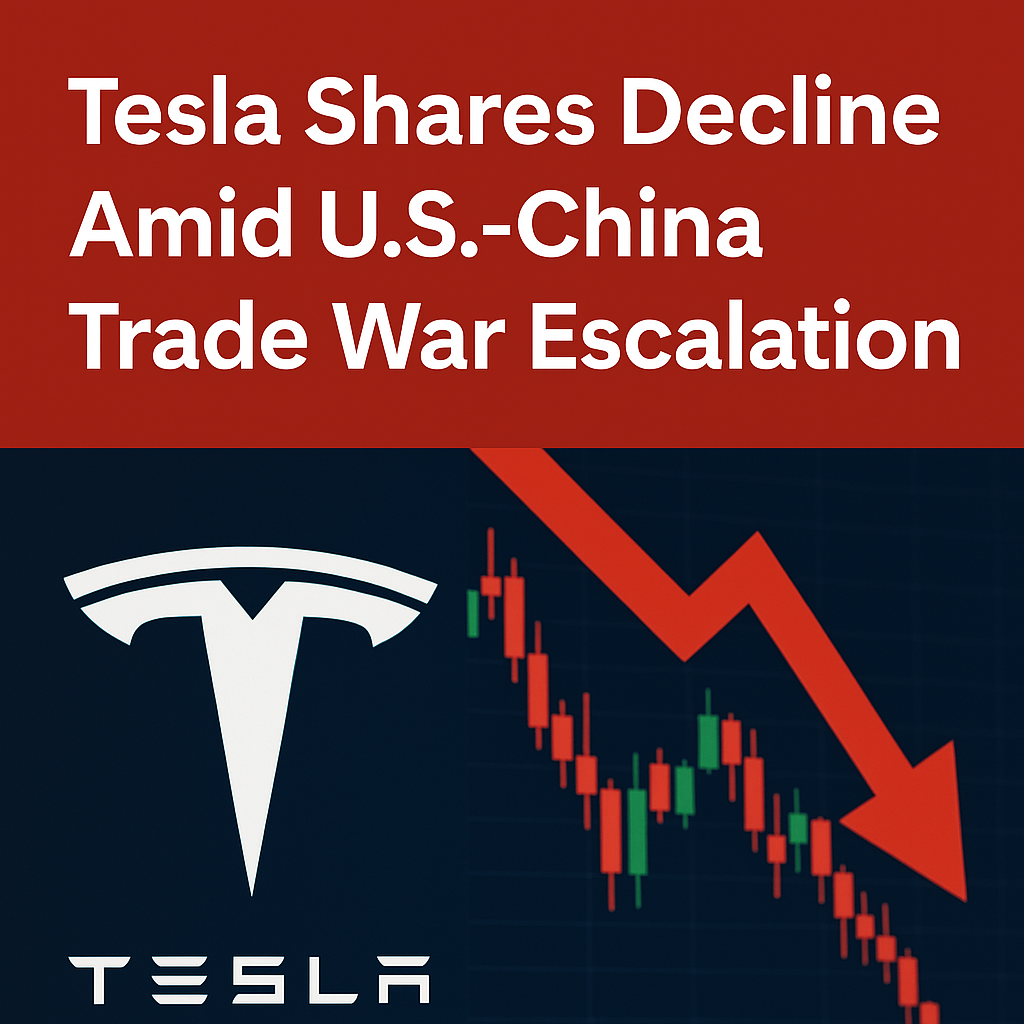The Trade War Hits Tesla: What Investors Need to Know
Tesla (NASDAQ: TSLA) shares took a hit on April 4, 2025, falling 5.3% to $253.22 after China announced a sweeping 34% tariff on U.S. imports. Given that China contributes approximately 22% of Tesla’s total revenue and is home to its most efficient production facility in Shanghai, the impact of these tariffs could be significant. Investors are now faced with the question: How will Tesla navigate these challenges, and what does it mean for its stock in the short and long term?
Why This Matters for Investors
The latest round of tariffs comes amid heightened trade tensions between the U.S. and China, a situation that has sent shockwaves through global markets. Tesla, being one of the most globally exposed U.S. automakers, finds itself at the center of this economic battle. The immediate concern is the potential decline in sales within China, which could lead to revenue shortfalls, tighter profit margins, and supply chain disruptions.
Adding to the uncertainty, China is Tesla’s second-largest market, and any reduction in demand due to increased vehicle costs could drive Chinese consumers toward domestic EV brands such as BYD, NIO, and Xpeng. These competitors are already gaining market share with government support and strategic pricing advantages.
Tesla’s Shanghai Gigafactory: A Double-Edged Sword?
Tesla’s Shanghai Gigafactory has been instrumental in keeping production costs low while meeting the surging demand for electric vehicles (EVs) in Asia. However, with the latest tariff increase, the cost advantages that Tesla enjoyed from its Shanghai operations could be severely diminished.
If Tesla cannot absorb the cost impact, it may have to raise prices on its Model 3 and Model Y vehicles in China, potentially reducing its competitive edge. On the other hand, if the company attempts to offset tariffs by shifting production to the U.S. or other regions, logistical and operational costs could rise, further squeezing margins.
Broader Market Implications
Tesla’s stock movement is often a bellwether for the broader EV and tech sectors. A prolonged trade dispute between the U.S. and China could have ripple effects across the industry, influencing:
- Semiconductor manufacturers: Companies like Nvidia and Qualcomm supply essential components to Tesla and other automakers. Increased tariffs could disrupt supply chains and lead to price volatility in the semiconductor sector.
- Battery suppliers: Tesla relies on Chinese companies for critical battery components, such as lithium and rare earth materials. A strained trade relationship may prompt supply chain shifts, increasing costs.
- Other U.S. automakers: Companies like Ford and General Motors, which also have international exposure, may face similar trade-related pressures.
What Analysts Are Saying
- Dan Ives, Wedbush Securities: “The tariff hike is a significant headwind for Tesla’s China business, but we believe Elon Musk and his team are exploring alternative strategies to mitigate the impact, such as leveraging production outside of China.”
- Goldman Sachs Report (April 2025): The firm’s latest research note suggests that Tesla could look to Mexico and India for expanded manufacturing capabilities as geopolitical risks escalate.
- Morgan Stanley: Analysts warn that “a prolonged trade war could pressure Tesla’s gross margins and delay its ambitious production targets.”
Key Investment Insight
For investors, the key takeaway is that Tesla’s short-term outlook appears uncertain, but its long-term growth story remains intact. Here’s what to consider:
- Short-Term Volatility: Expect continued stock price fluctuations as trade negotiations evolve.
- Long-Term Expansion Plans: Tesla’s efforts to diversify its manufacturing base beyond China could cushion the impact of these tariffs.
- Market Positioning: Tesla remains a global leader in EV innovation, but investors should closely watch its ability to maintain strong market share in China despite increased pricing pressures.
Navigating the Tesla Trade Turbulence
While the trade war presents an immediate challenge, Tesla’s ability to innovate and adapt has historically allowed it to weather economic storms. Investors should stay informed on further developments regarding U.S.-China trade policies, Tesla’s manufacturing strategies, and competitive positioning in the global EV market.
For continued updates on Tesla and other major market movements, stay tuned to MoneyNews.Today—your trusted source for actionable investor insights.





